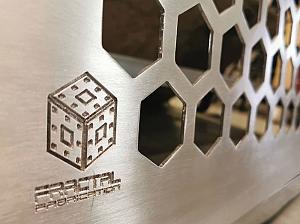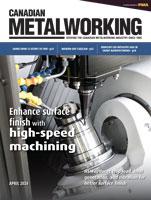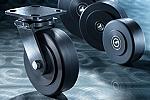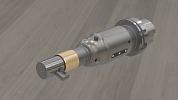Manager of Marketing Initiatives
- FMA
- The Fabricator
- FABTECH
- Canadian Metalworking
Enterprise Resource Planning 101
ERP software centralizes every aspect of your business on an easy-to-maintain, scalable system
- By Simon De Brito
- April 13, 2017
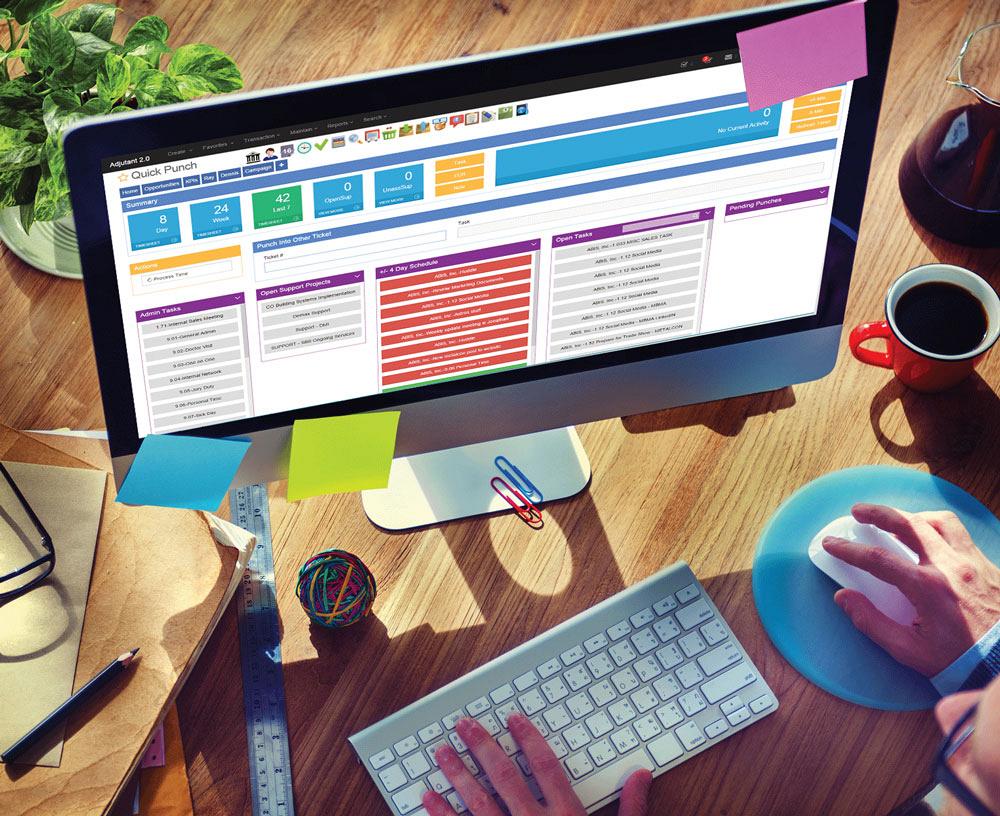
Enterprise resource planning (ERP) systems centralize accounting, production, inventory, and logistics data in a single, centralized location. Photo courtesy of ABIS Inc.
The manufacturing sector, like so many sectors, is facing increasing pressure in a constantly changing business environment. To remain competitive, your company has to be able to quickly adapt your processes, maintain your margins despite rising steel prices, and track items and materials to comply with an increasing number of regulations.
These challenges are even more complex if you take into account the current state of most manufacturers’ IT infrastructures. The median manufacturer uses a legacy system that combines myriad business software systems to meet accounting, customer relationship management (CRM), HR, product life cycle management (PLM), and other types of needs.
If this is your case, you might recognize that these systems are difficult and expensive to maintain. They also are hardly agile, and often are not adapted to the needs of your business.
But what can you do?
The solution could be looking into an enterprise resource planning (ERP) system. ERP centralizes every aspect of your business on an easy-to-maintain and scalable infrastructure. With the correct ERP system, you could enter a sale in the system and watch it being automatically reported into your accounting books.
Your production managers could rely on an accurate and live-updated inventory to schedule production thanks to the most advanced tracking systems. Your logistics department could assess which items have been produced and tagged to a specific client, making it easy to manage from a centralized dashboard.
Those are only a few benefits an ERP system can bring to your manufacturing company, so let’s start at the beginning.
Defining an ERP System
An ERP system manages all of the information and resources involved in a company’s operations by means of an integrated computer system. Indeed, ERP software is built to collect and organize data from every department within a company to provide management with insight into key performance indicators (KPIs) in real time. It integrates areas such as production planning, procurement and purchasing, inventory, CRM, and accounting.
ERP has been around for decades, and it actually got its foothold in the manufacturing industry as a way to extend the capabilities of material requirements planning.Generally speaking, there are three types of ERP systems: out of the box, customizable, and configurable.
1. Out-of-the-box ERP
An out-of-the-box ERP is a preconceived system that needs zero to very little configuration or customization. It includes vital functionalities that are repetitive across markets and industries. Relatively cheaper and quicker to install, it is also the less flexible option and companies will have to bend their processes to fit into the new system.
2. Customizable ERP
A customizable ERP is a piece of software built from scratch to fit your current processes. It requires heavy development and budget, as well as senior management and a team of experts in ERP implementation. Because of the amount of work that goes into it, it is the choice that has the highest risk and overall cost. A good fit for this type of project are large corporations with decades of best practices and unique processes that already give them a clear competitive advantage.
3. Configurable ERP
A configurable ERP is a middle ground between the first two choices. Probably the most common, it still requires some development, but it is easier, quicker, and cheaper to implement than a customized system. A configurable system is basically a list of modules that you choose from to create a unique system. The programming phase consists of selecting and setting up the right modules.
Modules for Manufacturing
An important aspect of the ERP software you select is its capabilities. This is determined by the list of modules the system offers and how it connects to every part of your business. For the manufacturing industry, the following functions are recommended:
•Product Life Cycle
This should integrate business process management (BPM) capabilities and deliver a planning and scheduling module to help your managers visualize the entire production line with the click of a button.
•Order and Purchasing
The most advanced ERPs offer a system that can manage requests, collect bids, and archive vendor quote histories. When integrated with your production lines and inventory, it anticipates projected needs and identifies potential savings ahead of the curve.
•Supply Chain
Look for a module that manages logistics and shipping in one central platform. It enables your team to easily track incoming and outgoing items, optimizes delivery routes for each driver, and manages your bills of lading (BOL).
•Customer Relationship Management
A CRM platform grows your business by managing leads and existing customers in one system. This eliminate duplicates, increases sales revenues, and improves lead conversion and customer satisfaction, all in an integrated system.
•Project Management
ERPs should provide a detailed and accurate breakdown of your cost per project. This prevents your teams from relying on estimates and enables you to know exactly how every resource and asset is used to optimize your profitability.
•Inventory and Warehouse
Get rid of spreadsheets, cluttered warehouses, and slow-moving inventory by tracking assets from the moment they arrive to the minute they are delivered to the customers. An ERP lets you know exactly what is on your production lines, and what is in the pipeline for the upcoming weeks. With that kind of power in their hand, managers are able to plan their stocks with visibility over several weeks.
•Accounting Integration
ERP systems can track every payment and automatically consolidate all purchases into your accounting system as they happen. You can manage expenses and assets and monitor cash flow with the transparency needed to run a sustainable business.
Keep in mind that some of these systems have been specifically designed for the manufacturing industry and offer more advanced modules according to your type of business. If you are in the automotive, aerospace, or medical industry, those specific modules have been developed and will be the most impactful for your organization.
They will deliver benefits to almost every division and drastically increase your operational efficiency and overall profitability.
Simon De Brito manages marketing initiatives at ABIS Inc., 713-680-2247, www.abiscorp.com.
subscribe now


Keep up to date with the latest news, events, and technology for all things metal from our pair of monthly magazines written specifically for Canadian manufacturers!
Start Your Free SubscriptionAbout the Author
- Industry Events
MME Winnipeg
- April 30, 2024
- Winnipeg, ON Canada
CTMA Economic Uncertainty: Helping You Navigate Windsor Seminar
- April 30, 2024
- Windsor, ON Canada
CTMA Economic Uncertainty: Helping You Navigate Kitchener Seminar
- May 2, 2024
- Kitchener, ON Canada
Automate 2024
- May 6 - 9, 2024
- Chicago, IL
ANCA Open House
- May 7 - 8, 2024
- Wixom, MI











